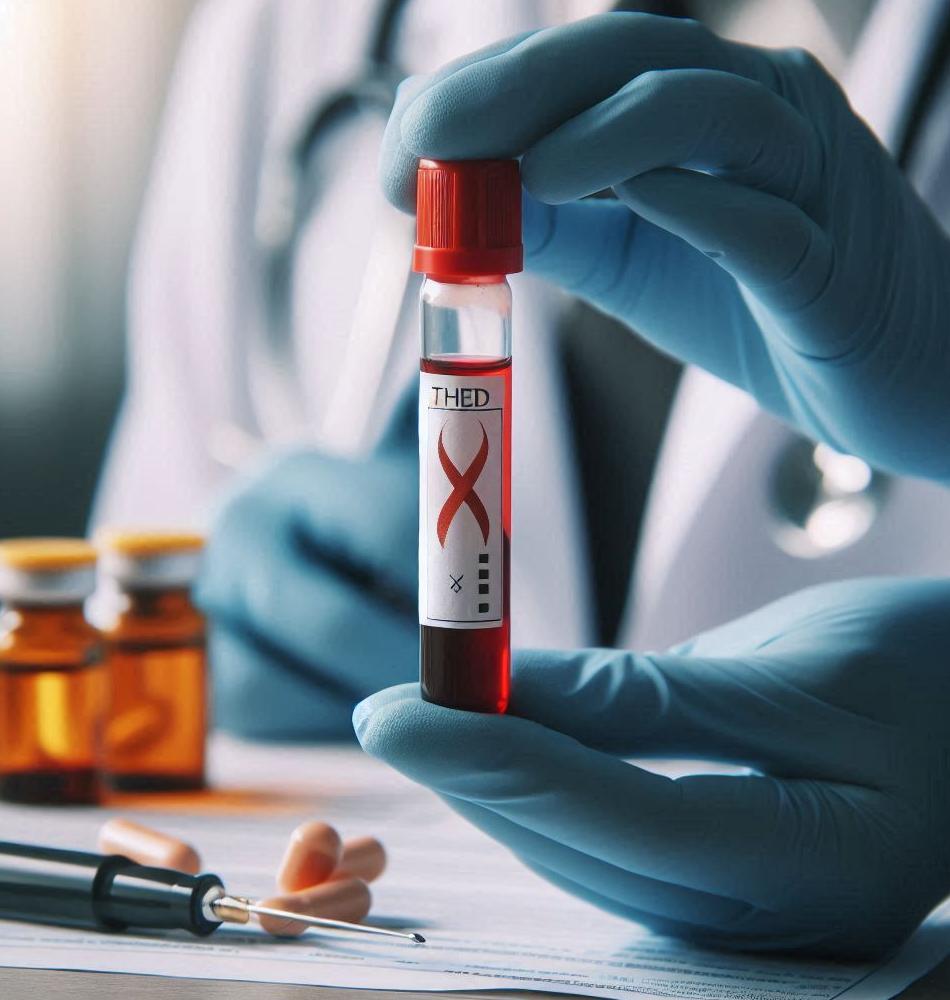Understanding the Antibody Test for Hashimoto's Thyroiditis 🔍
Hashimoto's thyroiditis is an autoimmune disorder that affects the thyroid gland, leading to hypothyroidism over time. One of the crucial steps in diagnosing this condition involves the antibody test. But what exactly is this test, and why is it so important? In this article, we will explore the nuances of the antibody test for Hashimoto's, its purpose, how it is conducted, and the implications of the results.
The Basics of Hashimoto's Thyroiditis 🤔
Before delving into the antibody test, it is essential to grasp what Hashimoto's thyroiditis entails. This condition is characterized by the body’s immune system mistakenly attacking the thyroid gland, resulting in inflammation and gradual loss of thyroid function. ### What Are the Symptoms of Hashimoto's?
Individuals with Hashimoto's thyroiditis may experience a range of symptoms, including:
- Fatigue
- Weight gain
- Cold intolerance
- Dry skin
- Hair loss
- Constipation
- Depression
The antibody test is an essential tool in diagnosing Hashimoto's thyroiditis. It measures the presence of specific antibodies in the blood that indicate an autoimmune response against the thyroid gland.
Types of Antibodies Tested 🧬
There are primarily two types of antibodies tested when diagnosing Hashimoto's thyroiditis:
### 1. Thyroid Peroxidase Antibodies (TPOAb)TPO antibodies are directed against thyroid peroxidase, an enzyme crucial for the production of thyroid hormones. Elevated levels of TPO antibodies suggest that the immune system is attacking the thyroid gland. ### 2. Thyroglobulin Antibodies (TgAb)
These antibodies target thyroglobulin, a protein produced by the thyroid gland. While TgAb are less commonly tested than TPOAb, their presence can still indicate an autoimmune response.
Why Is Testing Important? 🚦
The antibody test for Hashimoto's is not just about confirming a diagnosis but also plays a crucial role in several aspects:
### Early DetectionIdentifying the presence of antibodies can lead to earlier diagnosis and intervention. Early treatment can help manage symptoms and reduce the risk of complications associated with hypothyroidism.
### Monitoring Disease ProgressionHealthcare providers can monitor the levels of these antibodies over time, providing insight into how well a patient is responding to treatment. A decrease in antibody levels may indicate effective management of the condition.
### Differentiating from Other ConditionsAutoimmune thyroid disorders can present similarly. The antibody test helps distinguish Hashimoto's thyroiditis from other thyroid diseases, ensuring appropriate treatment strategies are implemented.
How Is the Test Conducted? 🧪
The antibody test is relatively simple and usually involves a blood draw. Here’s what you can expect during the process:
### Preparing for the TestNo specific preparation is necessary for the antibody test, though your healthcare provider may advise you to avoid certain medications that could affect the results.
### The Blood DrawA healthcare professional will draw a small amount of blood from a vein, typically in the arm. The entire process typically lasts only a few minutes.
### Analyzing the ResultsOnce the blood sample is processed in a laboratory, the results will indicate whether any antibodies are present. A higher than normal level of antibodies may confirm Hashimoto's thyroiditis, while lower levels suggest that the thyroid gland may be functioning normally.
Interpreting Antibody Test Results 🔎
Understanding the results of the antibody test requires knowledge of standard reference ranges:
- **Normal TPOAb Levels:** Typically less than 35 IU/mL- **Elevated TPOAb Levels:** Greater than 35 IU/mL, indicative of Hashimoto's - **Normal TgAb Levels:** Generally considered below 40 IU/mL- **Elevated TgAb Levels:** Above this threshold may suggest autoimmune activityIt is important to remember that not every individual diagnosed with Hashimoto's will exhibit elevated antibody levels. Some may have normal counts but still experience symptoms due to thyroid dysfunction.
Frequently Asked Questions About the Antibody Test for Hashimoto's 💭
- What do high levels of antibodies mean?- How often should I get tested?- Are there any risks associated with the antibody test?- Can lifestyle changes impact antibody levels?- What additional tests might be needed alongside the antibody test?Conclusion: The Importance of the Antibody Test in Hashimoto's Thyroiditis 🌟
The antibody test plays a key role in identifying and managing Hashimoto's thyroiditis. By detecting specific antibody levels, healthcare providers can better understand a patient's autoimmune response and tailor treatment plans effectively. Understanding the nature of these tests can empower individuals to communicate more effectively with their healthcare providers, leading to improved outcomes. If you suspect you have Hashimoto's thyroiditis or are experiencing symptoms, consult with your healthcare provider for testing and guidance.
.png)






